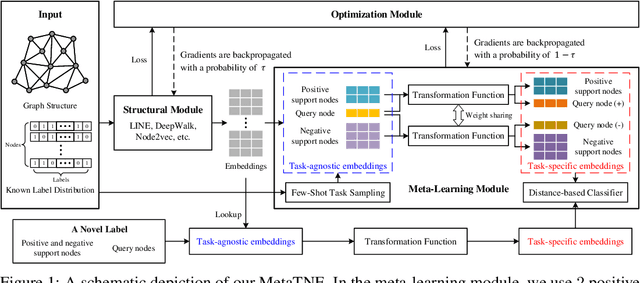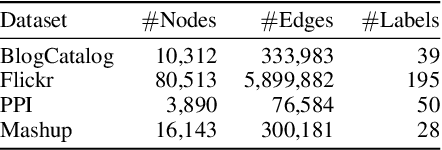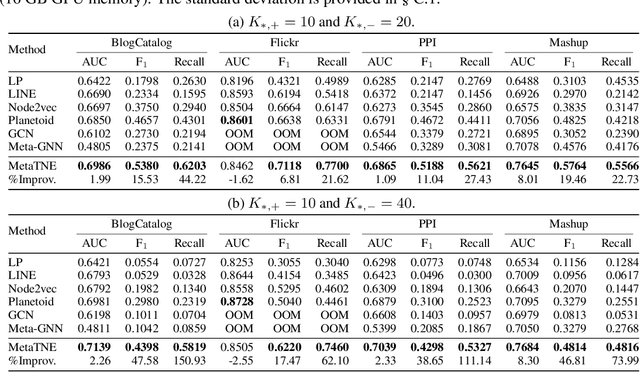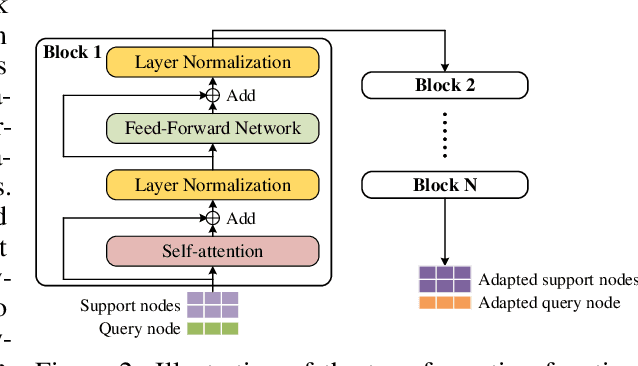Node Classification on Graphs with Few-Shot Novel Labels via Meta Transformed Network Embedding
Paper and Code
Jul 06, 2020



We study the problem of node classification on graphs with few-shot novel labels, which has two distinctive properties: (1) There are novel labels to emerge in the graph; (2) The novel labels have only a few representative nodes for training a classifier. The study of this problem is instructive and corresponds to many applications such as recommendations for newly formed groups with only a few users in online social networks. To cope with this problem, we propose a novel Meta Transformed Network Embedding framework (MetaTNE), which consists of three modules: (1) A \emph{structural module} provides each node a latent representation according to the graph structure. (2) A \emph{meta-learning module} captures the relationships between the graph structure and the node labels as prior knowledge in a meta-learning manner. Additionally, we introduce an \emph{embedding transformation function} that remedies the deficiency of the straightforward use of meta-learning. Inherently, the meta-learned prior knowledge can be used to facilitate the learning of few-shot novel labels. (3) An \emph{optimization module} employs a simple yet effective scheduling strategy to train the above two modules with a balance between graph structure learning and meta-learning. Experiments on four real-world datasets show that MetaTNE brings a huge improvement over the state-of-the-art methods.
 Add to Chrome
Add to Chrome Add to Firefox
Add to Firefox Add to Edge
Add to Edge